While there are many blogs and news to read from in order to inform oneself about the latest cutting-edge investing strategies, it is always interesting to solidify one’s basics and general knowledge with a great book.
Although it is slower and can sometimes feel tedious, the extra effort is worth it, as a solid knowledge of the way markets work will definitely show in your investment decisions.

Without further ado, let us explore some of the great books that every investor should read. They are in no particular order, and each of them will most definitely up your investing game and market knowledge.
The Intelligent Investor – Benjamin Graham
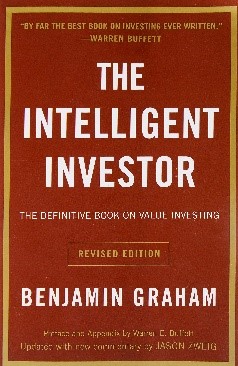
The author of “The Intelligent Investor” was a renowned professor, known as the godfather of investing. It’s funny that this title should make us think of our actual greatest investor, Warren Buffet because, according to Buffett, this book is “the best book on investing ever written.”
In this consequent read, you will not learn how to make millions. But you will learn something perhaps even more essential: how not to lose money. The intelligent investor analyzes the long-term evolution of a company before investing. He protects himself from making losses by diversifying investments. An intelligent investor does not chase quick profits but rather focuses on building a solid long-term portfolio.
The author explains all the basics, from stock analysis to how the stock market works and recommend strategies, always with one thing in mind: to stay in the run and not go bankrupt. It seems that the lesson has been well-integrated by Warren Buffett, as he famously repeats his main rule on investing: “Rule #1: Never lose money. Rule #2: Never forget rule #1.”
Rich Dad Poor Dad – Robert Kiyosaki
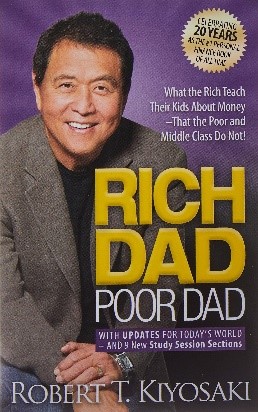
From the front cover, we can read: “Rich Dad Poor Dad: What the Rich Teach Their Kids About Money That the Poor and Middle Class Do Not!” Indeed, this book is the story of little Robert growing up with two dads: his real dad – or poor dad – and his dad’s best friend – or “rich dad”.
Although not very dense and quite short, this book explains the basics rules about money and how to manage it, breaking myths such as the need to earn an enormous income to be rich, or how to make money work for you instead of the other way around.
By redefining what an asset is (an object generating money) and a liability ( an object costing money), Kiyosaki offers a new perspective on money which will most likely serve many. For example, your house is not an asset. You’ll find out why when reading the book.
Thinking, Fast and Slow – Daniel Kahneman
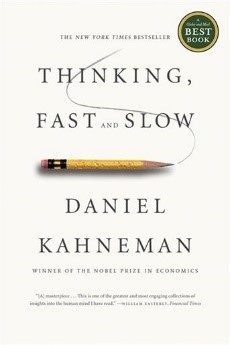
Famously known as the first psychology scholar to receive the Nobel Prize in Economic Science (in 2002), Daniel Kahneman is a searcher and lecturer at Princeton University. To no surprise, the man knows a thing or two about thinking. But how is it related to investing you may ask?
In his book, Kahneman dives deep into the way our minds make decisions. He exposes all the little biases that we succumb to without even being aware of it. He gives out guidelines and general rules on how to avoid these obstacles to our reason and to make decisions, think clearly, analytically and rationally.
After reading this, you will most certainly be amazed by all the biases you were exposed to without knowing. In fact, I believe that this should be a required read for anyone that is convinced that humans make rational decisions, because (spoiler alert), we really do not.
The Little Book of Common Sense Investing – John C. Bogle
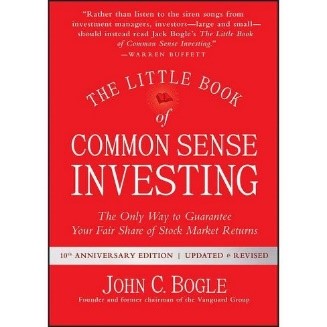
Do you know who created the first index fund, a tool following the performance of a batch of companies instead of one in order to mitigate the risk? That is right: it was John Bogle, so let me tell you that the man knows his craft. He also founded Vanguard Group and was good friends with Warren Buffett, who also happens to recommend this book.
In addition to be a relatively short and easy read, the book approaches investing in a new perspective, where the stock market is seen as a lose-lose proposition. Bogles will try to give us the keys to turn odds in our favor.
The entire idea of the book is to invest in low-cost and no-load mutual funds that replicate the market (index funds) and to hold them as long as we do not need the underlying money. The main argument us that using active funds can not possibly beat the market in the long term. However, the costs of funds are one of the few variables which we have control over, so we should always try to reduce them.
The Essays of Warren Buffett – Warren Buffett
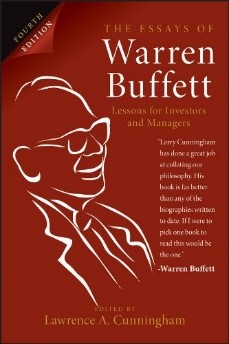
After having mentioned the modern godfather of long-term investing twice, let us talk about one of his many books.
The collection of these essays is very interesting as it spans a period of 50 years. The book aims to offer a complete description of the relationship between shareholders and corporations, something that is of course essential to know for those new to investing.
Buffett combines a strong knowledge of finance, economy, people, psychology, trade, management, leadership, corporate culture, history, politics, law, philosophy and education to propose a system of investing that is informed and educated, as opposed to the one dimensional day trader who only plays a lottery game on the short term. A truly necessary read, which reminds us what the stock market really is about.
Think and Grow Rich – Napoleon Hill
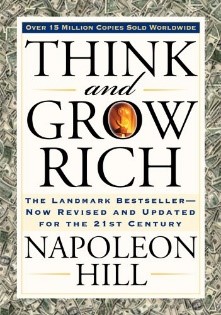
Written during the Great Depression, this book as sold more than 100 million copies worldwide. After having interview hundreds of wealthy and financially successful people, he derived 13 principles for success and personal achievement. These include desire, knowledge, persistence, faith, the “sixth sense” and so on.
Unlike the title may suggest it, the book is not a get rich quick scam. On the contrary, it explains that success does not happen overnight, and that is often a combination of many criteria, among which, hard work and efforts to educate oneself. In the end success comes from one essential thing: knowing what you want and have the burning desire to achieve your goal.
One Up On Wall Street – Peter Lynch
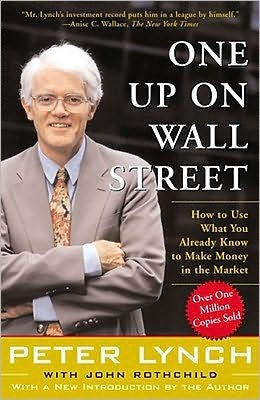
Peter Lynch started his carrier as an intern at Fidelity Investments. He then founded the Magellan Fund, growing it from $18 million to $14 billion in the course of 23 years. With a 30% average annual return, the fund was the most successful mutual fund in the world. Now, isn’t that some credentials?
Many people agree that it is a great book to start investing. Lynch does a great work of demystification of the stock market, which will give confidence to the small investor. He warns us that most people have an irrational approach to investing, focusing on what’s hot and make noise, while forgetting the many stocks that are profitable, only less fancy. He even admits that some of his best returns came from very uncool companies, such as thrash removal companies. In short: don’t follow the hype.
His investing philosophy is simple and logical, and even if you do not agree with it, you will find a lot of value in these pages. The beginners will learn a lot in any case, and I would argue that veteran investors might also very well find elements giving them new ideas or making them change their investment strategies altogether.
Alright, that is all on my side. I hope that this article gave you some reading ideas in order to either start your investing activities if you’re new to the activity, or to find new ideas and strategies if you’re already in the game. If you think that I left an important book aside, feel free to contact me via email or LinkedIn and I might write a second episode.

Sources:
https://www.thebalance.com/best-books-about-investing-4155082
https://blog.mywallst.com/best-investing-books/
Read our next article: Top 7 Tweets of the day - 15th of September 2020










